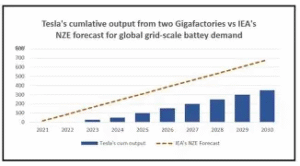In a surprising move, Tesla has canceled its ambitious Buffalo Dojo supercomputer project, leaving many in the Buffalo region questioning the future of local jobs and economic growth. This decision has sparked reactions from New York lawmakers, with concerns over broken promises and the impact on the state’s economy. In this article, we’ll dive into the reasons behind Tesla’s withdrawal, the implications for Buffalo, and the broader impact on the state of New York.
The Tesla Dojo Project: What Was It?

The Buffalo Dojo supercomputer project was a highly anticipated initiative that aimed to make Buffalo a hub for artificial intelligence (AI) development. Tesla’s Dojo supercomputer was meant to enhance Tesla’s capabilities in autonomous driving and other AI-driven technologies. The project was expected to bring in significant investment and create hundreds of local jobs, boosting the local economy.
However, Tesla has now decided to cancel the project, leaving many local workers and stakeholders in a state of uncertainty.
Why Did Tesla Cancel the Buffalo Dojo Supercomputer Project?
There are several factors contributing to Tesla’s decision to cancel the Buffalo Dojo project. Among the most significant reasons is Elon Musk’s decision to outsource AI development to other regions. Musk and Tesla have shifted their focus to more efficient ways of scaling up their AI and supercomputer infrastructure, leading to the abandonment of the Buffalo-based initiative.
Elon Musk’s Shift in Strategy
Elon Musk’s decision to pull the plug on the Buffalo project aligns with his broader strategy of streamlining Tesla’s operations. The company has faced challenges in maintaining large-scale projects, and the focus on AI development outside of New York represents a move toward more efficient, cost-effective solutions.
Tesla’s decision to focus on outsourcing instead of keeping the AI development in Buffalo has raised questions about the long-term viability of such projects in the region.
New York Lawmakers React to Tesla’s Decision
The reaction from New York lawmakers has been swift and critical. Many were disappointed with Tesla’s decision to withdraw from the Buffalo Dojo project, citing the financial investment the state made to attract the company in the first place. This decision is particularly concerning given the initial promises of job creation and technological advancement.
Empire State Development’s Role
Empire State Development, New York’s primary economic development agency, played a pivotal role in negotiating the deal with Tesla. The agency helped facilitate the lease agreement that Tesla had with the state, and now the cancellation of the project raises questions about the state’s ability to hold companies accountable for meeting investment commitments.
Economic Impact on Buffalo Jobs
One of the most significant consequences of Tesla’s decision is the impact on Buffalo’s job market. The supercomputer project was expected to create hundreds of high-tech jobs in the area, especially in AI, engineering, and computer science fields. With the project canceled, many of these positions are now at risk, leaving a dent in the city’s employment landscape.
While Tesla has indicated that it will maintain some level of operations in the region, the cancellation of the Dojo project has cast doubt on the city’s future as a tech hub.
The State’s Penalties for Broken Investment Promises

In response to Tesla’s withdrawal from the project, there have been discussions about potential penalties for the company’s broken promises. The state’s investment in the project came with expectations of job creation and economic development. Failure to meet these expectations could result in financial penalties for Tesla, but the legal and financial consequences of this decision remain unclear.
What Does This Mean for Tesla’s AI Future?
Tesla’s shift away from the Buffalo Dojo project reflects a broader trend of moving AI development to more central locations. By outsourcing AI work, Tesla can tap into a larger pool of tech talent and resources, potentially increasing the speed and efficiency of its innovation efforts.
However, this decision raises concerns about the future of local economies like Buffalo, which were hoping to benefit from Tesla’s tech investments. The cancellation underscores the challenges of attracting long-term tech investments and keeping them within a specific region.
FAQs
Why did Tesla cancel the Buffalo Dojo supercomputer project?
Tesla canceled the project due to Elon Musk’s decision to outsource AI development to other regions, focusing on more efficient, cost-effective solutions for the company.
How will the cancellation of the Buffalo Dojo project impact Buffalo’s economy?
The cancellation will result in the loss of hundreds of potential jobs in the tech sector, affecting the local economy and reducing the city’s chances of becoming a major tech hub
What role did Empire State Development play in the Tesla project?
Empire State Development negotiated the deal and facilitated Tesla’s lease agreement with the state, which now faces questions regarding Tesla’s commitment to the project.
Will Tesla face penalties for breaking its investment promises?
There is ongoing discussion about potential penalties for Tesla’s failure to meet job creation and investment expectations, though the legal outcomes remain uncertain
What is the future of AI development for Tesla?
Tesla is shifting its AI development strategy by outsourcing some of its work to more central locations, which may lead to faster innovation but also raises questions about the future of local tech economies.
Conclusion: A Wake-up Call for Tech Investments
The cancellation of Tesla’s Buffalo Dojo supercomputer project serves as a cautionary tale about the risks of relying on large corporations for economic development. While Tesla’s decision may make sense from a business standpoint, it leaves many unanswered questions for Buffalo and other regions looking to attract tech investments. For local economies, this is a reminder of the importance of ensuring that such investments are truly sustainable and beneficial for the community in the long run.


